schefflera has 'bugs' ... help!
vieja_gw
15 years ago
Related Stories
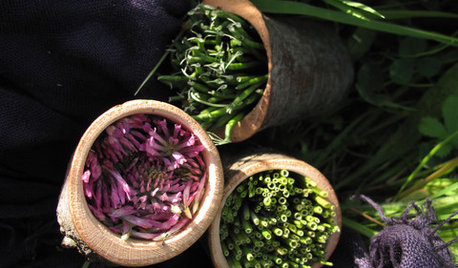
EARTH DAYHow to Help Your Town’s Beneficial Birds and Bugs
Make a habitat using local materials to provide a home to the creatures that help our gardens
Full Story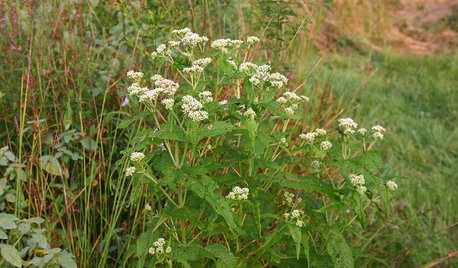
GARDENING GUIDESGreat Design Plant: Common Boneset Helps Good Bugs Thrive
Support bees, moths and butterflies with the nectar of this low-maintenance, versatile and tactile prairie-style plant
Full Story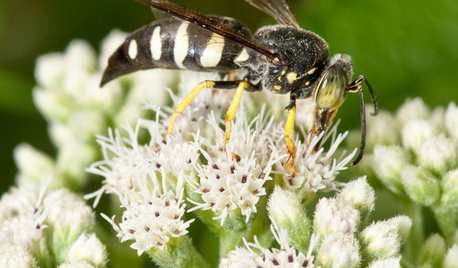
GARDENING GUIDESSand Wasps Keep True Bugs in Check and Help Pollinate Summer Flowers
Look for these solitary wasps nesting in sandy sites and foraging on flowers in July and August
Full Story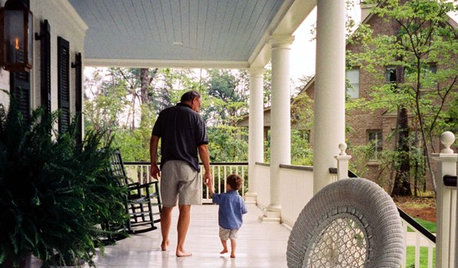
GARDENING AND LANDSCAPINGPorch Life: Banish the Bugs
Don't let insects be the bane of your sweet tea and swing time. These screening and product ideas will help keep bugs at bay on the porch
Full Story
GARDENING AND LANDSCAPINGBid Bad Garden Bugs Goodbye and Usher In the Good
Give ants their marching orders and send mosquitoes moseying, while creating a garden that draws pollinators and helpful eaters
Full Story
HOUZZ TOURSMy Houzz: An Art-Filled Austin Home Has Something to Add
Can a 90-square-foot bump-out really make that much difference in livability? The family in this expanded Texas home says absolutely
Full Story
GARDENING AND LANDSCAPINGBreezy and Bug-Free Modern Porches
Screening keeps pests out of these diverse porches across the U.S., while thoughtful designs keep them visually appealing
Full Story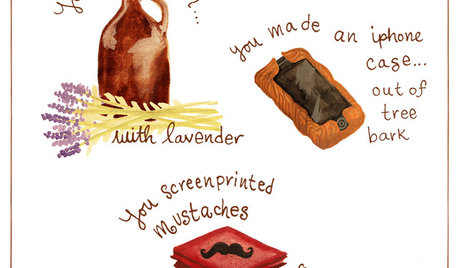
DIY PROJECTS12 Signs You've Caught the DIY Bug
Been making inventive things from scratch? Repurposing salvaged pieces creatively? It may be more serious than you think
Full Story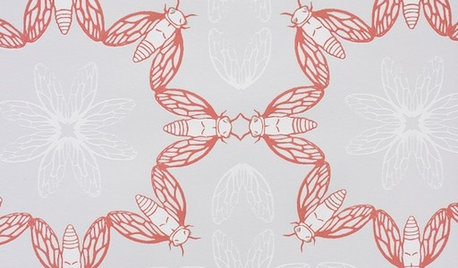
PRODUCT PICKSGuest Picks: Decor to Make Your Eyes Bug Out
Insects are marching to a different tune these days, showing up on knobs, teapots and even tablecloths
Full Story
HOUSEKEEPINGThree More Magic Words to Help the Housekeeping Get Done
As a follow-up to "How about now?" these three words can help you check more chores off your list
Full Story





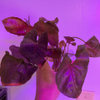

rhizo_1 (North AL) zone 7
jeannie7
Related Professionals
Andover Landscape Contractors · Bloomington Landscape Contractors · Elmhurst Landscape Contractors · Emmaus Landscape Contractors · Fairview Landscape Contractors · Kettering Landscape Contractors · Las Vegas Landscape Contractors · Lehigh Acres Landscape Contractors · Old Saybrook Landscape Contractors · Soddy Daisy Landscape Contractors · Waterford Landscape Contractors · New Carrollton Landscape Contractors · Sun Valley Landscape Contractors · Ansonia Landscape Contractors · Charleston Interior Designers & Decoratorsvieja_gwOriginal Author
jeannie7
rhizo_1 (North AL) zone 7
vieja_gwOriginal Author
ankraras
rhizo_1 (North AL) zone 7